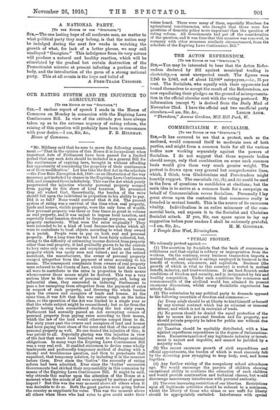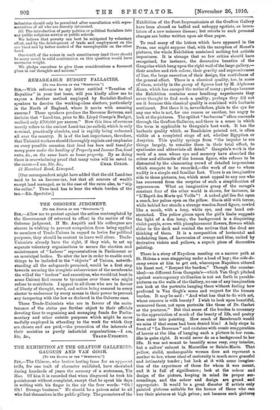(1) The assertion by Socialists that the basis of commerce
is selfishness and that capital is robbery or impropriation from the workers. On the contrary, every business transaction imports a mutual benefit, and capital is savings employed in business to the benefit of workers, consumers, and capitalists. Business (the growth of which is vital to this country) is rooted in mutual benefit, industry, and trustworthiness. It can best flourish under conditions of freedom and security, and is invigorated by fair and healthy competition. Under such conditions the commerce and commonwealth of the civilised world has attained its present enormous dimensions, whilst every Socialistic experiment has utterly failed.
(2) The submission by any political party to demands opposed to the following essentials of freedom and commerce :— (a) Every adult should be at liberty to bind himself or herself by any mutual contract which has no criminal or immoral intent, and which is not in restraint of trade.
(b) No person should be denied the equal protection of the law to secure his personal freedom and his property, nor should private property be taken for public use without due compensation.
(c) Taxation should be equitably distributed, with a bias against superfluous expenditure in the degree of its luxurious- ness. Excessive taxation of any legitimate industry or invest- ment is unjust and impolitic, and cannot be justified by a majority vote.
(3) The recent enormous growth of civil expenditure and official appointments, the burden of which is most sincerely felt by tho deserving poor struggling to keep body, soul, and home together.
(4) Any further raising of the compulsory school attendanee age. We would encourage the parents of children showing exceptional ability to continue the education of such children and would provide continuation and technical classes, but would discourage unnecessary interference with parental authority.
(5) The ever increasing restriction of our liberties. Restrictions upon all legitimate activities should be reduced to a minimum, whilst the liberty of those who abuse or are unfit for liberty should be appropriately curtailed. Interference with special
Industries should only be permitted after consultation with repre- sentatives of all who are directly interested.
(6) The introduction of party politics or political Socialism into any public religious service or public schools.
We believe that poverty can best be mitigated by voluntary effort, and by the development of trade and employment on the one hand and by better control of the unemployable on the other hand.
One-tenth of the voters in each constituency (and there should be many more) in solid combination on this question would have enormous weight.
We pledge ourselves to give these considerations a foremost place in our thoughts and actions."



















































 Previous page
Previous page